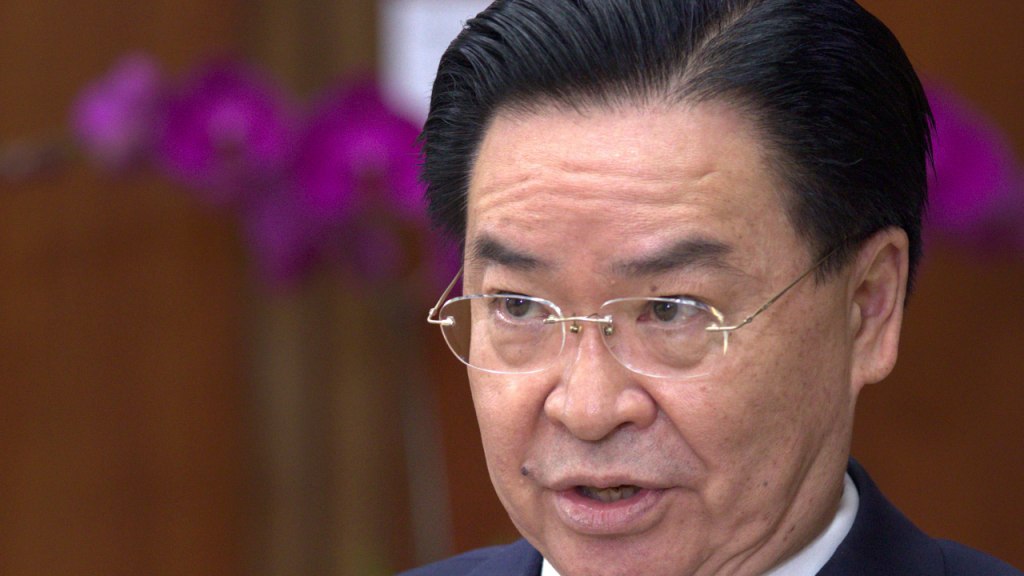Taiwan’s outgoing foreign minister, Joseph Wu, has been outspoken about the need for democracies to push back against the expansionist efforts of Russia and China. He emphasized the importance of democratic nations uniting against the military assertiveness of both Russia and China in regions such as Europe and the South China Sea. Wu warned that if Ukraine were to fall to Russia, it could embolden China to further expand its influence in the Indo-Pacific. He urged democracies to resist authoritarian states that threaten their rights and sovereignty as Russia and China collaborate to expand their territorial reach.
Wu expressed concern as Russian President Vladimir Putin visited China amid Russia’s ongoing invasion of Ukraine. Putin and Chinese leader Xi Jinping reaffirmed their partnership as both countries experience rising tensions with the West. Wu highlighted the collaboration between authoritarian countries like Russia and China, supporting each other’s expansionism. He called on Western powers to continue supporting Ukraine as a message that democracies would defend one another, emphasizing the potential disastrous consequences if Ukraine were to be defeated.
The outgoing foreign minister also highlighted the ongoing tensions in the South China Sea, emphasizing the region’s strategic significance as a resource-rich area and key trade route. China’s territorial claims have led to territorial skirmishes with neighbors such as the Philippines, resulting in minor collisions and injuries to Filipino navy personnel. Wu expressed concerns over China’s ambitions to project power in the region, highlighting the importance of not losing sight of authoritarian expansionism in the Indo-Pacific.
Wu emphasized that tensions in the South China Sea pose a greater risk than those in the Taiwan Strait, indicating China’s efforts to project power across various regions. He criticized Beijing’s tactics of pursuing security agreements with nations like the Solomon Islands and increasing military presence across Asia and Africa. Taipei remains committed to maintaining peace and the status quo in relations with Beijing, despite China’s efforts to change the status quo through military pressure, information warfare, and other actions.
The outgoing diplomat also discussed Taiwan’s relationship with the U.S., expressing confidence that Taipei would continue to have close ties with Washington regardless of the outcome of the U.S. presidential election. Wu highlighted the importance of security pacts, such as those between the U.S., Australia, and Japan, in deterring China from escalating aggression in the region. Despite challenges, such as China’s efforts to isolate Taiwan diplomatically, Wu has worked to strengthen unofficial ties with European and Asian nations, as well as the U.S., Taiwan’s strongest unofficial ally.
Wu’s departure from his position as foreign minister comes as Taiwan prepares to inaugurate a new president. His successor, Lin Chia-lung, will take over the role, while Wu returns to his previous position as secretary-general of the National Security Council. Wu reflected on the challenges of his tenure, which included navigating diplomatic isolation imposed by China and strengthening Taiwan’s ties with international partners. He emphasized the importance of democracies uniting against authoritarian expansionism and highlighted the importance of maintaining peace and stability in the region.


